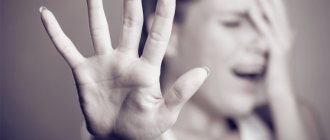- Persen
- Articles
- Stress in men. How can a man get rid of stress?
All people find themselves in stressful situations from time to time, but each person overcomes them in their own way. In the process of evolution, living organisms develop mechanisms to adequately respond to stress. Humans also have such mechanisms. Stress becomes a problem only when a person is not able to quickly and effectively adapt to the current uncomfortable situation, when for a long time he cannot satisfy one or another strong desire.
The nature of the origin of stress
Stress in men mainly arises from a reluctance to talk and think about their problems, which directly leads to a stressful situation that negatively affects a man’s health. However, the symptoms of stress affect not only the person himself, but also affect his environment. Signs of depression can include:
- Decreased energy. The influence of stressful situations has a powerful effect on the entire human body. After stress, a man does not have enough strength for productive work and a full life. He gets tired faster not only during physical but also mental stress. It can be difficult for a person in such a situation to independently restore the previous rhythm of life.
- Sleep disturbance. Staying for a long time in the process of irritation can lead to insomnia, or at the most inopportune time a man begins to feel sleepy. Anxiety often occurs in the evening. Many men play computer games at night as a way to cope with depression. But this method will not bring any benefit; the body will only get worse. In order to return to a calm life, it is necessary to eliminate the source of anxiety.
- Increased irritability. A person becomes restless, quick-tempered, and develops various fears and anxieties over any little things. Some men become extremely aggressive.
- Self-esteem is greatly reduced. The man feels inferior, incapable of anything. These symptoms may be the result of failure at work or lack thereof. And also these symptoms appear after a breakup with a loved one. Representatives of the stronger sex lose self-confidence after situations that humiliate their dignity.
- The need for food increases, which gradually develops into overeating. The consequence of this may be problems with potency.
- Headaches become more frequent, muscle discomfort and problems with the gastrointestinal tract appear.
- Pulse and blood pressure increase.
Increased irritability and aggression are symptoms of depression
How to get rid of stress?
Men often experience stress at work from overexertion, due to conflicts with superiors or colleagues, due to emotional burnout, due to the inability to earn enough, due to the inability to realize themselves and do what they love. If family troubles, conflicts with parents, wives, and children are added to this, then such problems force men to seek psychological protection from emotional overload.
Over time, the number of unmet needs accumulates, tangles of psychological problems, psychological defenses and, as a result, psychosomatics (psychosomatic manifestations) are formed.1 Stress in men has its own characteristics. The fact is that there are stereotypes in society that a man should not be weak and helpless. If it is easier for a woman to cry to a friend, ask for help and support from her parents, or turn to a psychologist, then a man often does not allow himself to do this, believing that he must cope with his problems himself. However, in order to solve psychological problems, special knowledge is often needed.
If there are no accumulated psychological problems, then a man is usually able to cope with stress on his own. But most often such problems already exist, partly due to the fact that in our country psychological culture was ignored for a long time and the psychological literacy of the population was not increased.
One way to get rid of stress is to get rid of negative chronic emotional states. These conditions interfere with the normal functioning of the natural defense mechanism developed by evolution. A professional psychologist should work with chronic emotional states, but there are stress management methods that you can use on your own.
Symptoms of a neuro-emotional disorder
Stress in men, women and children entails a number of mental or physical problems, such as:
- Extreme exhaustion;
- Sleep disturbance;
- Excessive anxiety;
- Irritability;
- Feelings of guilt and inferiority;
- Substance abuse.
In this case, they may experience:
- Loss of appetite or overeating;
- Muscle weakness or pain;
- Arrhythmia;
- High blood pressure;
- Headache;
- Increased blood glucose levels;
- Increased sweating.
It is at this point in our story that we want to communicate with you and at the same time give you advice.
Do you work in a prestigious company where management has changed twice in the last six months? Of course, that happens sometimes!
However, is something wrong? Analyzing your well-being, do you notice an unreasonable rapid heartbeat, both day and night, a constant lack of air, increased sweating? At the same time, every little thing begins to irritate you, although you would not have paid attention to it before?
Take our advice! Consult your doctor. Since all these symptoms seem to indicate that you have a nervous breakdown, which must be urgently eliminated in order to prevent more serious consequences.
Dangerous enemy or faithful assistant?
Who among us is not familiar with stress? This scourge spares no one today, affecting both men and women equally. However, representatives of the fair sex have a whole arsenal of means at their disposal to keep a dangerous enemy under control: shopping, SPA, chatting with girlfriends about this and that, including fleeting frustrations and major troubles that are so replete with our lives. All this perfectly helps to cope with minor everyday stresses and allows ladies not to accumulate tension in themselves, unless life drives them into a really steep peak.
It's more difficult for men. It is not customary for the stronger sex to cry into their vests, complaining to their comrades about the nagging of a strict boss, a quarrel with their beloved girlfriend, or a crooked plumber who connected the washing machine incorrectly. You’ll say it once or twice, and you’ll get the answer: “Why are you whining like a woman?”, “Pick up your snot,” “Grit your teeth and be patient, you’re a man.” And if the tension cannot be relieved in time, it begins to accumulate, gradually, day after day, sinking its claws deeper into its owner, until it enters the chronic stage, from which it is a stone's throw to a full-fledged physical illness or psychosis. That is why it is so important to know the main signs of stress in men and be able to distinguish them in time from ordinary fatigue and bad mood.
In the modern world, everyone has a lot of reasons for stress.
It’s interesting that nature designed stress as a means to quickly mobilize the body’s defenses. In this regard, it is both good and useful, since it helps a person avoid danger or overcome an obstacle that would normally baffle him. Stress helped our ancestors, no less, to survive!
But when the mammoth is caught, the enemy is defeated, and the saber-toothed predator is driven away from its native cave, it’s time for stress to retreat, and for the body to recover from the shock it has experienced. If the tension does not subside, instead of mobilizing forces, it leads to their decline, nervous exhaustion and apathy.
Stress Relief Tips
It is extremely possible to divide methods of overcoming stress into “chemical” and psychological. We will start with the psychological aspects of overcoming.
The first thing to think about in a situation that we assess as prolonged stress is what exactly drives us into this state? Are we able to somehow influence, change or overcome current difficulties? If you can get rid of a stressful situation, this is best. Although how many people decide to quit a good position for the sake of their psychological well-being?
As part of psychotherapeutic correction, individual work with the client can be carried out, but the author’s experience suggests that in the case of a non-pathological condition, it is best to work in psychotherapeutic groups. As part of group work, people learn to reconsider their problems and literally energize each other, which helps to take a fresh look at the problem of their condition. It is not uncommon for such an experience to ultimately dramatically increase the so-called stress resistance, which in the future helps to more successfully cope with life’s incidents.
One of the working methods is auto-relaxation training, associated with learning to better understand your body. After all, stress is perfectly detected at the somatic level, as we wrote about above. Sessions of such training teach a person to regulate his psycho-emotional state by changing the tone of his body.
Methods of controlled change in one’s state are also very quick to learn. In their original form, they draw ideas from meditative and breathing practices. The author of the article himself conducts relaxation training and uses this method in everyday life.
Now let's move on to more formalized methods of overcoming stress - pills.
Today there is a very widespread belief that tablets will help overcome stress. And historically, many people seek reassurance at the bottom of the glass. Unfortunately, not all “traditional” methods are effective, much less safe.
We won’t talk about the fact that you shouldn’t douse stress with alcohol—that’s obvious. Poor health, an increased risk of forming bad habits, and a lack of external change will only make the situation worse.
Pills only relieve the symptoms of stress, but do not eliminate its causes.
Another myth is drugs. Of course, dozens of sedatives on sale will help cope with hundreds of symptoms, but... the reason will remain, and the attitude towards the problem will remain unchanged.
In addition, many drugs require increasing doses over time, and their decomposition in the body is not the fastest and safest process.
Here we are talking about freely available drugs (like Afobazole) and traditional medicines, like valerian. By the way, about valerian. Let's pose a strange question: is it necessary to completely remove stress from life? Let's give an example from student life.
Some anxious students before exams are so crushed by stressful conditions that at the last moment they decide to “calm down” with valerian. They will achieve their goal, but how does this affect their effectiveness? As a rule, such students do much worse: and not because they don’t know the subject, but because they simply don’t care - as long as they pass.
Strong sedatives destroy normal tension completely. Taking such drugs, a person automatically refuses to use his resources, weakening his nervous system.
Do you need it? — the decision is up to each individual.
Psychologists recommend simple ways to relieve stress on your own:
- Try to prevent or avoid stressful situations. If you follow this advice, you can avoid depression and poor health.
- Exercise. During physical training, endorphins are produced. Endorphin brings a person into a state of euphoria, it is sometimes called “nature’s drug” or “the joy hormone.” You can exercise at home, go to the gym, or go for a run every evening after work.
- Organize your work day. If possible, you should simplify your planned tasks and allocate time for rest and relaxation. To distract from problems, you can read a book, an interesting article, or watch an educational program.
- Increase sleep time. Try to go to bed at least a couple of hours earlier. The body needs time to recuperate. This will help him cope with stress better.
- Drink soothing tea before bed. You can brew herbs such as mint, chamomile, St. John's wort, fireweed or lemon balm. All of them have a mild sedative effect.
- Take a contrast shower. During this process, not only the emotional state returns to normal, but the entire body is strengthened.
- Communicate more. It is important that a loved one not only listens to all the problems and experiences, but also helps with advice in a given situation.
How to restore potency after stress?
It is obvious that negative stress conditions lead to a sharp drop in the body’s tone. And it is quite natural that sexual activity also decreases. This is due to two facts:
- Lack of desire (psychological component).
- Weakening of potency due to general exhaustion of the muscular system.
Weakening potency under stress is a normal behavioral reaction of the body.
As a rule, stress completely “switches” attention to itself and the weakening of potency in these states is rarely perceived as a real problem or as fear of loss of function. But overly impressionable men, or men with high sexual activity, may perceive such an incident as a serious blow with far-reaching consequences. In the worst case, functional sexual disorders such as STOSN may develop.
It is worth understanding that a weakening of sexual function under stress is normal: even in the animal world, under extreme conditions, the number of sexually active males sharply decreases, because in order to leave offspring, you first need to survive.
Read on the topic: The effect of stress on testosterone levels in men
It's worth starting with the fact that different people perceive fatigue differently. Some people find it difficult to work at a computer for a couple of hours without a half-hour rest break, while others notice weakness only after a day of hard physical labor. Each body is individual and can react differently to stress. This should definitely be taken into account when assessing the degree of workload.
Any activity that exceeds the body’s ability to adapt causes characteristic sensations (in both men and women), mainly manifested by the following symptoms:
- Feeling overwhelmed.
- Drowsiness.
- Emotional exhaustion.
- Aching pain throughout the body.
- Decreased libido and weakened potency.
It is very important to understand that we are talking about constant overloads leading to the development of serious changes in the body. The short-term effect of fatigue on potency can even be beneficial, since at this moment cyclical changes occur in the body, represented by the narrowing and expansion of all blood vessels.
It’s a completely different matter when a representative of the stronger sex is permanently under the influence of fatigue. This condition will definitely have a negative impact on erection. In fact, this is a kind of stress for the body.
It has been statistically proven that many men do not want to discuss their problems in bed with doctors or friends. It is easier for them to take pathology for granted than to engage in treatment. This is one of the reasons for the increase in infertility and impotence.
This approach to one’s own health is extremely irrational. Since fatigue, stress and potency are interrelated concepts, and many men are accustomed to working hard and being exhausted, to avoid problems with potency and erection, it is enough to review your activity schedule and try not to pay attention to negative life moments.
One way or another, chronic fatigue negatively affects potency, so draw your own conclusions, dear men!
Relieving stress in men
Our life does not always reward us with pleasant and desirable gifts, some of which are not worth paying close attention to, but if you have been subjected to severe, sudden or prolonged stress and noticed symptoms such as low self-esteem, apathy, problems in the sexual sphere and craving for alcohol, It is necessary to take measures to relieve stress. The most effective ways to relieve stress are to jointly adjust life circumstances with the help of an experienced psychologist, change jobs, improve communication skills with the opposite sex, and improve relationships within the family. An excellent way to relieve men from stress is to travel or open their own, albeit small, business. Based on the recommendations given in the text, you will most likely avoid the serious consequences of everyday stress, improve your emotional state and will not think about an illness caused by emotional problems, until you are very old!
The effect of stress on the human body
Here are some useful tips for reducing your stress levels.
| Simplify your life. Think about all the things you have planned for the day. If it becomes obvious that there are too many things to do today, then some can either be canceled or postponed to another day in order to relieve your schedule. |
| Physical exercise is the ideal answer to the question “How can a man relieve stress?” Intense training promotes the production of special hormones - endorphins, which help you relax and feel a surge of pleasure. You don't have to be a bodybuilder to start exercising. You can sign up for some sports section, work out on the horizontal bars in your yard, or go for a run. |
| Take a break. Find a quiet place where you can relax. Have a snack (preferably healthy food). Read a book or magazine, or watch something relaxing on TV. |
| Get enough sleep. Even a few days of constant lack of sleep can seriously harm the body. Sleeping an hour or two more every night will not only help you overcome stress, but will also improve your overall well-being. |
| Eat in moderation. When stressed, many people sometimes overeat, undereat, or rely too much on fast food. You should eat in moderation and as healthy as possible. |
| Write something. If you enjoy writing, this can be a great way to relieve stress. You can start a diary, write a letter to a friend, or compose a story. |
| Don't be afraid to express yourself. In modern culture, it is generally accepted that tears, especially among men, are a sign of weakness, although in fact this is not the case. People sometimes feel much better after crying. |
| Talk to a friend or someone you trust. |
Many men find it easier to overcome stress by communicating with friends on the Internet or playing computer games. Socializing can certainly help, but spending too much time on a computer or phone screen will only make your stress worse. In addition, violent video games do not allow you to relax and also increase your stress level.
Sometimes the level of stress can exceed all acceptable norms. Extreme stress can be experienced by men who have experienced a serious accident or crime victims. Such stress seriously affects a person's character and personality. And to help cope with extreme stress:
- Parents or other close people you can trust. If you feel like you can't cope with stress alone, you should definitely find someone you can turn to for help. Have a heart-to-heart talk with your significant other or people you trust. Don't hide the reasons for your stress and talk about how it affects you. If you trust a loved one, you will no longer feel lonely, and with their support you can find a way to overcome stress.
- Psychologists or psychological recovery course. In addition to getting help from family members, consulting with a psychologist can also be an important help in dealing with stress. You need to meet with a specialist who will help you identify the cause of stress, teach you how to minimize it, and tell you about stress management techniques that will be useful to you in the future. If necessary, he or she may prescribe you a course of medication to manage symptoms of stress and make your life less stressful.
If you realize you're stressed, don't forget that you can always change it. Exercises to reduce stress levels will help you, if not get rid of it, then at least reduce it to a minimum. And if you start developing stress-reducing habits now, they will greatly benefit you in the future.
Factors that cause negative emotions can be divided into 3 groups:
- Physiological. A person faces situations in which there is a direct threat to his health or life. This could be hunger, exposure to high or low temperatures, or an attack by an attacker.
- Psychological. Such reasons are more common. There is no direct threat to health or life. In this case, a person suffers from severe emotional overload at work or at home. Not only those who are engaged in business or have a career face stress, but also housewives who enter into conflicts with their husbands and children.
- Ecological. Environmental reasons include living in environmentally unfavorable areas with polluted water and air, as well as prolonged use of household appliances, Wi-Fi, cellular networks (electromagnetic pollution) and regular trips by personal or public transport.
Studying stress and human health, scientists came to the conclusion that the more often people experience negative emotions, the more often they get sick, and the worse their relationships with others become.
The negative impact of stress on human health is that during a stressful situation the sympathetic part of the nervous system is activated, which leads to maximum stimulation of many vital organs.
A person’s appetite often worsens, and difficulties arise with digestion of food and elimination of waste products (defecation).
The development of diseases such as:
- diabetes,
- ulcer,
- asthma,
- anorexia,
- obesity.
At the first stage of stress and during distress (negative, prolonged and intense stress), a decrease in the activity of the immune system occurs. With weakened immunity, people not only suffer more often from various infections, but also suffer more severely from illness.
The impact of stress on mental health is in most cases negative. A person loses the ability to adequately respond to current events. Manifestations of aggression or, conversely, apathy are possible.
Depending on the factor that caused the negative experiences, the following may develop:
- Hysterical neuroses, accompanied by paresis, development of tics, loss of voice or hearing. Such neuroses are characteristic of creative people.
- Neurasthenic neuroses that occur when the nervous system is exhausted and often lead to prolonged depression.
- Obsessive-compulsive neuroses. A person constantly experiences the same fear, for example, of contracting AIDS. Fear forces him to wash his hands unnecessarily, avoid contact with people, and not use public transport. The fact that it is impossible to transmit AIDS through a handshake or through handrails in transport does not become a reason to change behavior.
In the most severe cases, the patient is capable of committing suicide.
The negative impact of stress on a person is expressed in:
- the appearance of chronic fatigue,
- decreased ability to concentrate,
- increased conflicts with boss and colleagues,
- loss of initiative
- making mistakes in the work process (mistakes are especially dangerous if someone’s health or life depends on the emotional state of a person - the work of a driver, a doctor, etc.).
Pregnancy
During the period of bearing a child, the female nervous system becomes more vulnerable. The woman feels fear of the upcoming birth and fears for the health of the fetus. However, the more often a pregnant woman experiences negative emotions, the higher the likelihood of:
- Miscarriage. Anxiety leads to an increase in the tone of the muscles of the uterus, causing its active contractions. The most detrimental effect of stress on the body of the expectant mother is in the first trimester. Due to changes in hormonal levels, the implantation (introduction) of the embryo into the uterus is disrupted.
- Increased toxicosis. Mild nausea may intensify, become around the clock and turn into vomiting.
- Freezing of the fetus.
Family and environment
Being in an inadequate state, a person is not able to build full-fledged relationships with the people around him. Conflicts especially often arise with family members.
The patient may become suspicious. In such cases, obsessive ideas arise that loved ones want to kill him, betray him, or use him for their own interests.
Focusing on your own experiences can make you show indifference to relatives.
Childhood stress
Adrenaline, like growth hormone and many other hormones, is also present in the child’s body. Situations in which this hormone is released into the blood occur almost daily.
The causes of emotional upheaval can be separation from parents, conflicts between close relatives, the need to learn new skills, etc.
It is impossible for children to avoid stressful situations. Moreover, many of them become the cause of psychological problems in the future. This is the main danger of negative experiences. For example, if in the presence of a girl her father beat her mother, when she becomes an adult, the girl will experience fear of men and not trust them.
Even though stress affects our body negatively, in some cases it is necessary for the human body.
Emotional experiences are needed when you are in an extreme situation. They help mobilize the hidden resources of our body and save lives.
The positive impact of stress on us is manifested in:
- raising vitality;
- slight increase in blood pressure;
- blood oxygen saturation;
- improving metabolic processes;
- the appearance of euphoria;
- increasing immunity.
Eustress experiences should be short-lived. Only in this case will they be useful.
Doctors have found that a hormone called testosterone is responsible for male stress. Testosterone is the most important hormone for the male body. During periods of irritation or depression, the level of this hormone decreases significantly. Severe stress and emotional overload cause hormonal imbalance.
This is explained by the increased release of adrenaline into the blood; adrenaline sharply reduces the production of testosterone. This is why men behave more aggressively or become irritable. Stressful situations and being under tension for a long period will certainly contribute to a decrease in the hormone. He, in turn, is responsible for male energy, sex life, and self-confidence.
The effect of stress on male potency
Stress causes the release of cortisol and adrenaline. These are hormones whose task is to maintain the body in times of danger. Adrenaline causes breathing and heart rate to increase, and blood pressure to rise. Cortisol suppresses the immune system, speeds up metabolic processes, and increases blood sugar levels. From a physiological point of view, one-time bursts are not dangerous for the body. However, if this happens on a regular basis, the functioning of many systems is disrupted. Main signs of chronic stress:
- Constant headaches;
- Discomfort from the gastrointestinal tract, since cortisol provokes ulceration of the mucous membranes;
- Decreased immunity;
- Apathy and depression.
During stress, the pituitary gland also releases prolactin, a hormone that also suppresses reproductive function, and testosterone levels drop. This is a kind of protective mechanism, a way to save energy that will be required to overcome a difficult period. The result of prolonged or frequent stress is a decrease in libido and worsening erection.
Chronic stress leads to vasospasm. Due to their constant compression, the elasticity of the walls decreases, blood circulation is disrupted, which worsens erectile function. Increased pressure during stress wears out the heart as it has to forcefully push blood through. Pumping function is also reduced. As a result, even in the presence of sexual arousal, an erection will no longer reach its maximum due to a lack of blood supply to the cavernous bodies.
Diabetes mellitus often develops from the constant active release of glucose into the blood against the background of chronic stress. This disease is almost always accompanied by erectile dysfunction.
Read how diabetes affects male potency.
The psychological state also contributes to the lack of sexual desire. A one-time strong shock can lead to a deterioration in potency. This could be an event that has nothing to do with sex, but which for some time disrupted the usual perception of the world, for example, an accident, loss of a job, the death of a loved one.
The body copes with life-threatening stress much faster and more painlessly than with those that arise against the background of self-analysis. It is deep convictions, moral and ethical experiences and anxiety that lead to psychosomatic pathologies.
Urologist Ekaterina Aleksandrovna Makarova on the effect of stress on a man’s sex life
The effect of depression on potency
Depression is a type of mental disorder characterized by constant depressed mood, low self-esteem, and the development of fears. Men often fall into depression during a midlife crisis. Depression can occur for no reason, simply against the backdrop of reassessment of values, fear of aging, or “burnout” at work. Main signs of depression:
- Lack of joy and satisfaction from everything that previously brought pleasure.
- Suicidal thoughts.
- Lack of energy for physical activity, feeling exhausted.
- Eating disorders: overeating or starvation.
- Increased irritability, outbursts of aggression.
- Pain that does not respond to conventional treatment.
- Reckless behavior.
Depression is not related to cortisol, which is produced during chronic stress. The level of this hormone increases as a consequence and is not the root cause. The main provoking factor of depression is the increased activity of the pituitary-adrenal system, which is forced to work in an enhanced mode. This can happen not only due to excessive soul-searching, but also, for example, due to a low-carb diet. In depressed men, sex may be present periodically, but it is not enjoyable, which makes it even more annoying.
Factors influencing the development of stress
Being depressed or prolonged stressful situations have a strong impact on intimacy. Some time ago, it was generally accepted that problems with potency appear only after 40 years. According to modern research, symptoms of stress can cause erectile dysfunction in people under 30 years of age.
In such a situation, men act differently. Some don’t even try to restore potency. Others resort to using stimulant medications. But none of these options can bring satisfaction. You can relieve tension and restore the former fervor in intimacy with the following tips:
- Improve your relationship with your partner. If there are conflicts in a relationship, they will immediately have an impact on the couple's sex life. Restoring good relationships can solve the problem. Another option could be to find a new lover.
- Try to avoid stressful situations at work. You should learn techniques that will help restore calm. This could be playing sports or various breathing practices.
- Identify and eliminate the root cause of irritation, since the consequences of stress can lead to psychological impotence. Psychological impotence is a purely male disease associated with decreased libido due to any mental or psychological abnormalities. Rest, proper routine and general strengthening of the body will help relieve such tension.
The development of stress is influenced by congenital characteristics and early experiences:
- Genetic risk factors. When conducting psychological studies, it was revealed that people's reactions to certain events depend 30-40% on the genes of their parents and 60-70% on life experience.
- Impact on the embryo. The risk of future stress in a child increases if the mother was in a negative psycho-emotional environment during pregnancy.
- Type of higher nervous activity. Determined at birth. It influences a person's reactions to stimuli. For example, melancholic people experience mental disorders more often than phlegmatic people.
- Childhood experience. Excessive experiences can distort the perception of the world and lead to insufficient resistance to the effects of a stressful situation.
Parental scenarios can provoke the development of stress due to errors in parenting and negative experiences. A person is able to correct this condition with awareness of the problem, sufficient motivation and control of emotions.
A stressful state can arise due to social environmental factors:
- dramatic changes in a person’s position in society;
- increased responsibility;
- the predominance of intellectual activity over physical activity;
- lack of free time and the need to hurry;
- chronic fatigue;
- violation of the daily routine;
- long work shifts;
- lack of creative elements in work;
- the need for a long wait;
- frequent changes of jobs;
- poor sleep;
- unhealthy diet;
- bad habits.
An additional influence is exerted by a person’s social environment. It creates a comfortable or uncomfortable environment. People with close family ties are less susceptible to stress because they feel safe.
When mental stress occurs, cognitive factors are of great importance. A person may feel discomfort due to increased individual sensitivity of receptors and incorrect assessment of the situation.
People with negative personality traits are more susceptible to developing stress. These include a tendency towards aggression, hostility and suspicion, low self-esteem and insufficient motivation.
Causes of male stress
We live in an interesting, if hectic, world. Sources of stress in men can be:
- Large volumes of tasks and projects at work;
- Conflicts in the family;
- Tension in relationships with your other half;
- Communication with unpleasant people;
- News about disasters, wars or family problems;
- Not getting enough sleep.
Consequences of stress
Stress in small quantities is even beneficial because it helps to cope with immediate problems. Short-term stress can:
- Help you focus on a situation or problem resolution;
- Exhaust you;
- Make you feel nervous or irritated
On the other hand, if you have been under stress for several days, your body may begin to give you signs that not everything is fine with your body. Chronic stress can cause both emotional and physical changes in a man's health.
Long-term stress can cause the following problems:
- Alcohol or drug abuse;
- Depression;
- Feeling restless;
- Insomnia;
- Aggression;
- Digestive problems;
- Reduced immunity to colds and other diseases;
- Reduced communication skills;
- Bad mood.
Note : You should not resort to abuse of alcohol, pills and drugs or binge eating in an attempt to cope with stress, as this will significantly harm the body. Following a short-term feeling of relief will come devastating consequences for your health and life. If you have already resorted to similar methods of dealing with stress more than once, then you should contact a psychologist who will help you cope with stress in less harmful ways.
If you deal with stress every day, then you should: 1) reduce the number of sources of stress; 2) learn techniques to reduce stress levels.
Briefly about severe stress reactions
Above we talked about the daily stress that permeates our lives from time to time. But stress also has clinical manifestations, which include acute stress reactions (ASR), post-traumatic stress disorder (PTSD) and chronic stress reactions.
OSD develops under sad circumstances: disasters, terrorist attacks, deaths of close relatives. May be accompanied by partial amnesia, fugues, and manic excitement. As a rule, most people exhibit PTSD reactions after ASD.
PTSD is a delayed-onset OSD that manifests itself in nightmares, intrusive thoughts about what happened, changes in behavior, and a desire to avoid reminding circumstances.
Finally, chronic prolonged stress can lead to asthenia, depressive symptoms, serious behavioral disorders and social maladjustment. Moreover, PTSD and chronic stress are very dangerous in terms of the development of suicidal actions.
All these types of stress are already beyond the norm. These are disorders that require professional treatment, including with the help of prescription medications.
Concluding our article, let us give men advice - do not be afraid to ask for help. Prevention of stress disorders is much better than their treatment, and a healthy psyche is more valuable than any financial resources.
And finally, we recommend that curious readers turn to the popular science book by Mihai Chiksen, which summarizes decades of advisory practice and experiments, revealing to readers the world of well-being and happiness.
Psychologist Borisov O. B.
- Is your beard not growing? Or is it not as thick and chic as you would like? All is not lost.
- Cosmetics and accessories for proper care of your beard and mustache. Log in now!
Physicians often use the concept of chronic fatigue syndrome in their practice. Many doctors use it to explain the occurrence of erectile dysfunction in men. Since complete exhaustion of the body is stressful for it, it is worth familiarizing yourself with what types of stressful situations there are.
Scientists distinguish two types:
- Eustress. It occurs in the process of feeling very strong positive emotions.
- Distress. The body's response to all kinds of negative situations.
In both cases, a number of metabolic changes occur in the body, which directly affect the sexual activity of the stronger sex.
Why does severe stress cause poor erection:
- Release of corticosteroid hormones (mainly adrenaline). Promotes rapid adaptation of all organs and systems to extreme situations. However, an excess of these biological substances inhibits the activity of testosterone, resulting in a decrease in libido and potency.
- Vasospasm. Accelerates blood flow for better body response to what is happening. In isolated cases, problems do not arise. But when a man is constantly under such influence, the blood supply to the penis is disrupted, which leads to a weakening of the erection.
- Fluctuations in blood pressure. Another factor that, when permanently exposed to a person, leads to a deterioration in his ability to have sex.
Thus, the effect of stress on a man’s potency is obvious. This type of condition does not bring anything good. Moreover, if such failures are observed constantly, sooner or later problems with erection will acquire an organic nature and dealing with impotence will become much more difficult.
Depending on the degree of disturbance, therapeutic measures may vary. Sometimes it is necessary to carry out drug treatment to normalize the psychological state. In other cases, it is recommended to rest so that the body can recover from increased stress and normalize the emotional background.
The following measures may help:
- Emotional release. The method helps to get rid of negativity without entering into conflict with others. The methods may vary. For some people, just shouting in a private place is enough. Anti-stress dolls help you get emotional release.
- Physical exercise. Strong workouts allow you to get rid of excess energy, stabilize your psycho-emotional background and improve your overall tone. However, it is important to avoid overexertion.
- Creation. Allows you to free yourself from negative emotions and relax. You can purchase special coloring books or take up your favorite hobby.
- Communication with animals. Pets help you calm down and relax. Tactile contact allows you to normalize hormonal levels.
- Consultation with a psychologist. A specialist will not only give recommendations for recovery, but also help you believe in yourself and get rid of worries.
- Meditation, breathing exercises, yoga and other relaxing practices. Moderate exercise helps change hormonal levels.
The choice of method depends on individual character traits. The help of others is of great importance during rehabilitation. It is advisable to talk and spend time with family members more often. This will help you get closer and feel a sense of security.
Restoring potency after stress and depression
Potency will restore itself if a man can cope with his condition and wants to look for a way out of it. It can be very difficult to do this on your own, but there is always a way out and help from specialists.
Who to contact: if potency decreases due to stress and depression, contact a sexologist or psychologist. For your initial appointment, it is advisable to go to an andrologist or endocrinologist to check your hormone levels. Below are the doctor's advice to a man with stress-induced decreased potency.
From the forum https://sprosivracha.com/questions/111125-iz-za-stressa-i-dlitelnogo-vozderzhaniya-problemy-s-erekciey:
Based on the level of hormones and blood sugar, the doctor will get an approximate idea of the nature of the potency disorder. If the triggering factors are stress or depression, the patient will be referred to a psychologist.
Psychotherapy
Psychotherapists and sexologists use various methods of stress relief, which they choose depending on the patient’s condition. The most commonly used form is an individual conversation. This is not talking with friends, but working on yourself. There will be no ready-made solutions, but a psychologist will help you find the root of the problem and suggest ways to solve it.
The method of suggestion works well on emotional men. Installations are given to the patient in reality or in a state of hypnotic sleep. There is also a method of psychoanalysis, during which the psychologist draws conclusions based on a study of associations and dreams of his client.
Airat Akhmadullovich Zaripov, psychiatrist, psychotherapist and hypnotherapist, clearly shows how to work with stress
Drugs
If potency is impaired due to stress or depression, antidepressants, sedatives, vitamins, and PDE-5 inhibitors are used. Of the latter, sildenafil and tadalafil are most often recommended. These drugs help strengthen and maintain an erection in cases of failure anticipation syndrome, stress due to a scandal with a partner, as well as in situations where the penis falls during sex.
Nootropics are prescribed to improve brain activity and increase concentration. The most common and safe drug is glycine, which is included in many dietary supplements, for example, “Ginkgo biloba with glycine and vitamin B.”
The anxiolytic Afobazol is sold without a prescription. The drug helps reduce the level of chronic stress. After 2-4 weeks, increased anxiety goes away, sleep normalizes, and attacks of aggression disappear.
Price of the sedative drug “Afobazol” from 367 rubles
Supplements with chamomile, sage, valerian, and motherwort help reduce stress. Herbal adaptogens: tinctures of ginseng and eleutherococcus contribute to increased vitality and physical activity. Bee tincture has the same effect. The effect is achieved only with a course of treatment, at least 21 days.
In severe cases, antidepressants and antipsychotics are prescribed. These drugs are prescription drugs. The selection of antidepressants is based on the results of the intake. During treatment, the doctor, if necessary, changes or combines them with others. Neuroleptics have an inhibitory effect and have a number of side effects.
Physical activity
Physical exercise helps normalize hormonal levels, improve mood, relieve muscle tension and spasms. However, it is important not to introduce new stress to the body, this time physical, otherwise the level of cortisol will only increase. No to long, exhausting cardio marathons and working with heavy weights, yes to moderate, feasible exercise. Team sports are good stress relievers, as well as swimming, brisk walking, and yoga.
Healthy sleep
Insomnia provokes lack of sleep, which means inevitable hormonal imbalance, increased irritability, decreased concentration and libido. Ideally, a person should sleep 8 hours: from 23 to 7 am. During this period, all phases of sleep are realized, the necessary hormones are produced, cell regeneration occurs, including brain cells, and stress levels decrease.
SPA treatments
Various types of massage, baths, and aromatherapy effectively help cope with stress. The brain receives a signal of pleasure and begins to produce corresponding hormones. The more pleasant procedures there are, the stronger the tendency to reduce stress.
Acupuncture is an effective anti-stress treatment.
Nutrition
When you are stressed and depressed, it is important to give up alcohol and nicotine, which make it difficult to look at the situation objectively. It is better to replace energy drinks, strong tea and coffee with herbal teas and cocoa. The nervous system does not need harsh stimulation.
You should include more foods with magnesium, potassium, and B vitamins in your diet. They will help stabilize the nervous system by regulating biochemical processes. Bananas, green leafy vegetables, brown rice, pumpkin seeds, legumes, fatty fish, dark chocolate are healthy.










